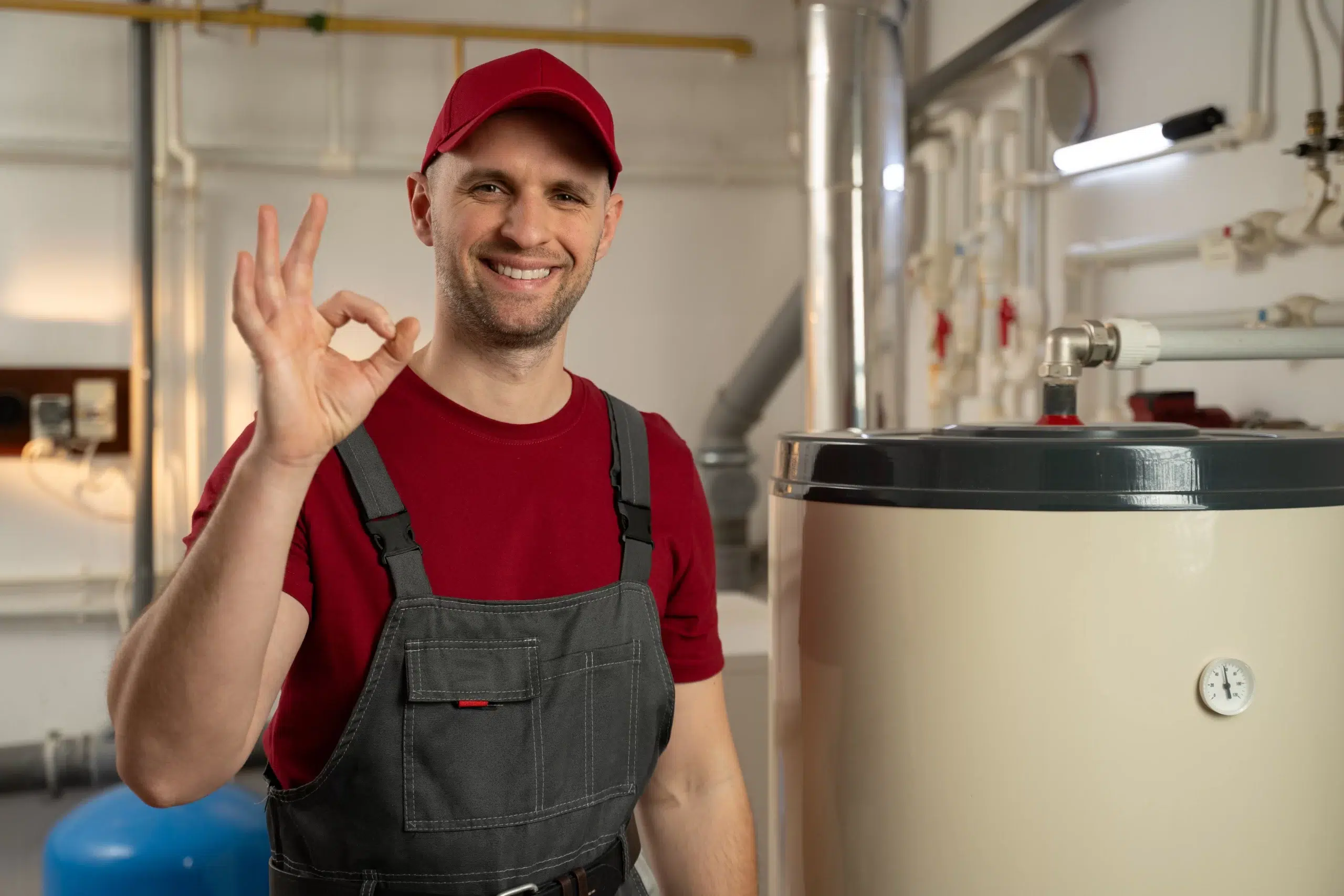How to Choose the Best Water Heater for Your Home in the Carolinas
When it comes to home appliances, few are as essential as your water heater. Whether you’re building a new home, upgrading your current system, or replacing an old unit, knowing how to choose the best water heater is a big decision. With so many options available, it can feel overwhelming to decide which one is right for your household. This guide will simplify the process, giving you all the details on how to choose the best water heater for your needs and budget.
Why Choosing the Right Water Heater Matters
Your water heater plays a vital role in your home, supplying hot water for daily tasks like bathing, cooking, and cleaning. The right water heater can:
- Improve Energy Efficiency: Save on utility bills with a model that’s tailored to your needs.
- Enhance Comfort: Ensure you have a steady supply of hot water whenever you need it.
- Increase Longevity: Avoid frequent repairs and extend the lifespan of your water heater.
For homeowners in the Carolinas, factors such as household size, energy costs, and climate make choosing the right water heater especially important.
Types of Water Heaters Explained
Learning about the different types of water heaters is the first step in choosing the right one for your home. Here are the most common options:
Tank Water Heaters
Tank water heaters are the most traditional and widely used option in many homes.
- How They Work: These units heat and store a specific amount of water in a tank.
- Advantages: Affordable upfront cost, reliable hot water supply.
- Drawbacks: Uses more energy due to standby heat loss.
Tankless Water Heaters
Tankless or on-demand water heaters heat water only when you need it.
- How They Work: They heat water as it flows through the system, providing hot water instantly.
- Advantages: Energy-efficient, compact, longer lifespan.
- Drawbacks: Higher upfront cost, may require plumbing or electrical upgrades.
Heat Pump Water Heaters
Heat pump water heaters use electricity to move heat from the air to warm your water.
- How They Work: These units pull heat from the surrounding air and transfer it to the water.
- Advantages: Extremely energy-efficient, lower operating costs over time.
- Drawbacks: Require more space, higher initial cost.
Solar Water Heaters
Solar water heaters use energy from the sun to heat water, making them a great choice for environmentally conscious homeowners.
- How They Work: Panels collect sunlight, and the energy is transferred to heat your water.
- Advantages: Renewable energy, low operating costs.
- Drawbacks: High upfront cost, dependent on sunlight availability.
Point-of-Use Water Heaters
Point-of-use water heaters are compact units designed to deliver hot water to a specific location, like a sink or shower.
- How They Work: They heat water directly at the point of use.
- Advantages: Instant hot water, energy-efficient for small tasks.
- Drawbacks: Limited capacity, not suitable for whole-house use.
Factors to Consider When Choosing a Water Heater
Choosing the best water heater depends on several factors. Here’s what you need to think about:
Household Size and Hot Water Needs
- Small Households: A smaller tank or tankless water heater may be sufficient.
- Larger Households: Consider a larger tank or multiple units to meet higher hot water demand.
Energy Efficiency
- Look for ENERGY STAR-certified models to save on energy costs.
- Consider how much you’re willing to invest upfront for long-term savings.
Fuel Type
- Electric: Commonly available and compatible with most water heaters.
- Gas: Typically cheaper to operate but requires ventilation.
- Solar: A great option for reducing your environmental impact.
Climate in the Carolinas
- The Carolinas’ mild winters make heat pump and solar water heaters highly effective.
- Proper insulation can reduce energy loss during cooler months.
Space Availability
- Tank models require more room.
- Tankless and point-of-use models are ideal for smaller spaces.
Budget
- Consider both the upfront cost and long-term operating expenses.
- Remember, a more expensive model might save you money over time.
Comparing Costs and Benefits of Water Heaters
Let’s take a closer look at the costs and benefits of each type of water heater:
| Type | Upfront Cost | Operating Cost | Lifespan | Best For |
|---|---|---|---|---|
| Tank | Low | Higher | 10-15 years | Affordable, steady hot water |
| Tankless | Medium-High | Lower | 20+ years | Energy-efficient, compact spaces |
| Heat Pump | High | Very Low | 10-15 years | Eco-conscious, larger homes |
| Solar | Very High | Minimal | 20+ years | Sustainable, sunny climates |
| Point-of-Use | Low | Varies | 10+ years | Small areas, supplemental heating |
Tips for Water Heater Installation
After selecting the best water heater, proper installation ensures safety and efficiency. Here are some tips:
- Pick the Right Location: Ensure there’s enough space and proper ventilation.
- Follow Local Codes: Your installation should meet all local building requirements.
- Hire a Professional: Professional installation reduces the risk of errors and ensures compliance with safety standards.
For detailed guidance, see our Ultimate Guide to Water Heater Installation in the Carolinas.
Maintaining Your Water Heater
To keep your water heater running efficiently and extend its lifespan, regular maintenance is key. Here’s what to do:
- Flush the Tank: Sediment can build up over time, reducing efficiency. Flushing the tank once a year helps prevent this.
- Check the Anode Rod: Replace the rod every few years to prevent rust in the tank.
- Test Safety Features: Regularly check the pressure relief valve to ensure it’s working properly.
- Insulate the Tank and Pipes: This reduces heat loss and improves energy efficiency.
For a full guide, visit our article on How to Maintain Your Water Heater.
Why Choose Hot Water Co Carolinas?
At Hot Water Co Carolinas, we make the process of choosing, installing, and maintaining water heaters simple. Here’s why customers trust us:
- Expert Advice: We help you select the perfect water heater for your home and needs.
- Professional Installation: Our team ensures your water heater is installed correctly and safely.
- Ongoing Support: From maintenance plans to repairs, we’re here to keep your system in top shape.
Final Thoughts
Choosing the best water heater for your home doesn’t have to be complicated. By considering your household size, energy efficiency needs, and budget, you can find a model that works for you. Once you’ve made your choice, proper installation and regular maintenance will keep your water heater running efficiently for years.
Learn More From Other Related Water Heater Articles
- How to Maintain Your Water Heater: A Carolinas Homeowner Guide
- Top Energy-Saving Tips for Your Water Heater in the Carolinas
- Common Water Heater Problems And How To Fix Them
- Water Heater Installation: The Ultimate Guide In The Carolinas
- When to Replace Your Water Heater: A Complete Guide for Carolinas Homeowners
- How to Choose the Right Size Water Heater for Your Home in the Carolinas


